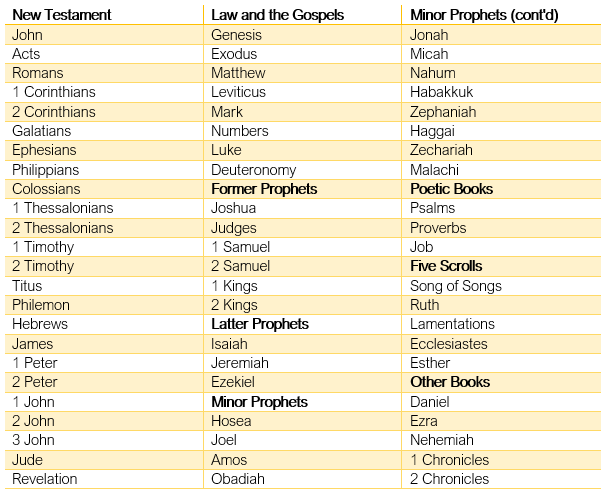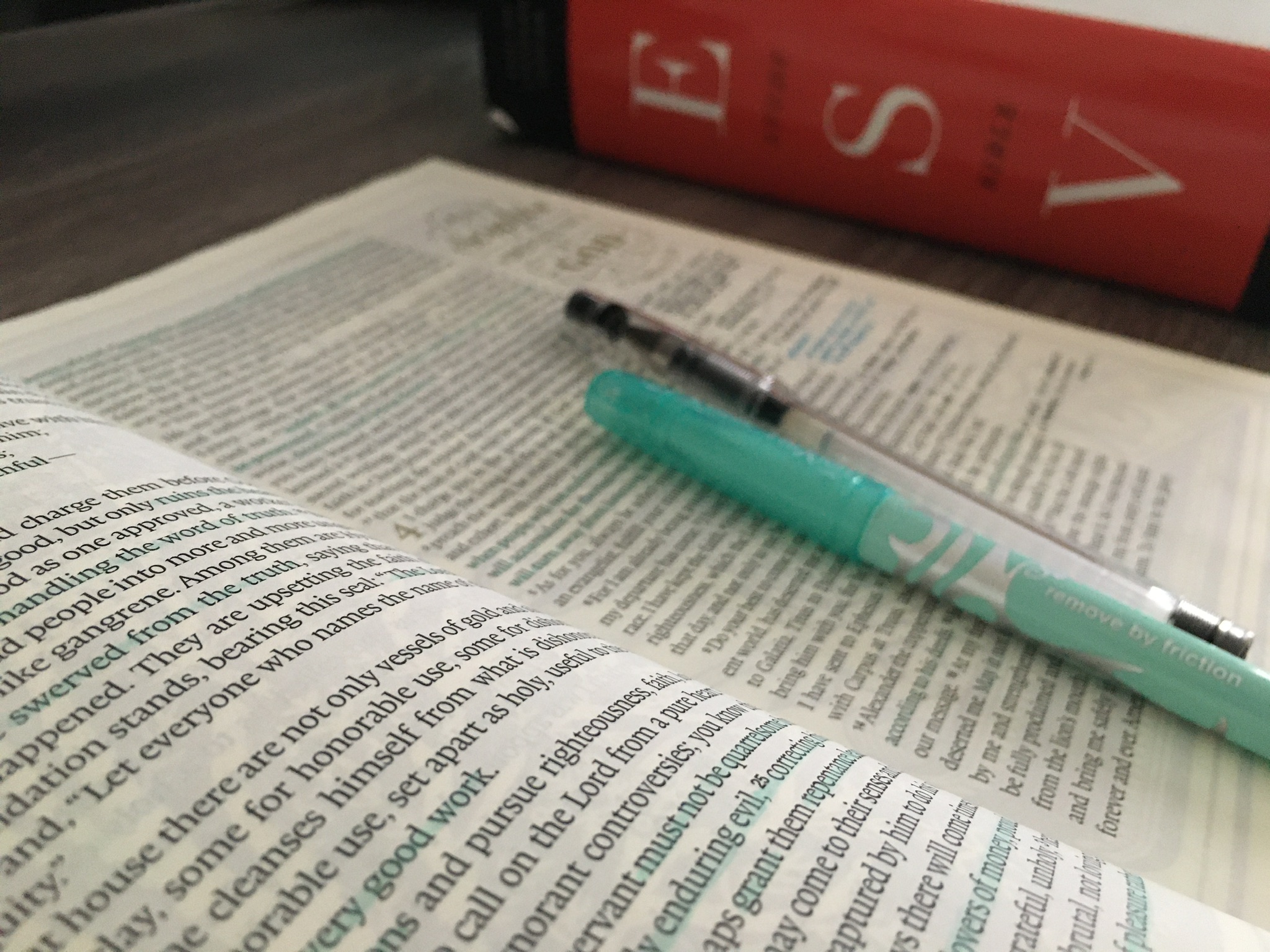Every Christian knows reading the Bible is essential to spiritual growth, but many struggle in actually doing it. This struggle probably stems from factors such as misplaced priorities, difficulty in understanding, and finding it boring. I do agree that there are some parts that are hard to understand, considering that it was written at least two thousand years ago. It is evident that their culture is far from ours today.
In a previous article, I shared some thoughts on the role of the Scripture in our Christian walk, but today I want to share some practical steps on building the discipline of reading the Bible daily.
1. Get a physical copy of the Bible.
Many of us are used to Bible apps. Nothing really is wrong with that. I myself am using it almost every day. However, for daily reading, I advise that you get a hard copy. This is to limit distractions as there are many studies which show that people have a hard time concentrating when using their phones.
If you get to purchase a beautiful Bible, there is also this excitement that comes from the visual stimulation of it.
On what translation to choose, you can check this article.
2. Come up with a regular schedule.
Reading the Bible involves discipline, and just like any discipline, it becomes easier when done on a regular basis. I advise choosing a time on the morning after waking up, but some people may find it easier to do it at some other time of the day. Though I do not want to be legalistic about it, there are only few people that I know who can do it consistently before sleeping. The reason is obvious: after a day’s work, it might be hard to focus just before going to sleep. Nevertheless, the principle remains, i.e. find a suitable regular schedule.
“This Book of the Law shall not depart from your mouth, but you shall meditate on it day and night, so that you may be careful to do according to all that is written in it.”
Joshua 1.8a
3. Choose a Bible plan.
Decide beforehand on the chronological order of reading. It does not necessarily have to be a literal daily plan. Just determining the order of the books to be read would suffice.

If you are like me who belongs to a “Christian family” or someone who has been exposed to Christianity for a while now, you may want to check the plan above. The idea is to start from John, arguably the best book of the Bible to start from, then finish all the way to Revelation. After that, I’ve mixed the remaining Gospels and the Torah (Law), because it might be quite hard to read some of the books of the Law. After that, the Old Testament order follows the order of the Hebrew Bible, for the reason that the Hebrew Bible is arranged according to the literary character of the books as opposed to the topical arrangement of the our Bible as we know it.

If you however are someone who is new to Christianity, you may consider this sequence instead. The difference is the placement of some Old Testament (OT) books for background. For the majority, New Testament (NT) is indeed easier to read than the OT. However, the NT frequently refers to the OT since OT was the first revelation of God’s Word. Thus, it makes sense to have some background of the history of Israel before proceeding with the rest of the New Testament.
For many people, they try to finish the whole Bible for one year. For one to do this, you will have to read around 4 chapters a day. And that can be quite a lot depending on the book. My advise though is, if you haven’t finished the Bible before, read it at a slower pace for you to be able to digest the message. Better to finish it slowly but have better retention than to finish it quickly with less to zero retention. When I was an undergraduate student, I already finished the Bible once, but it seems that I did not understand it well as I had rushed to finish it.
Also as a segue, I would advise against the use of devotionals. One friend described using devotionals as eating the “crumbs” from other people. We can receive good insights from people, but the Word of God is supreme. You do not know how much you are missing out by depending on other people instead of diving to the Word directly.
4. Learn some background on the book to be read.
Before actually starting a book of the Bible, check out some background information. This will be helpful for you to get the general idea of the book (i.e. outline), as well as the historical context. For starters, you can watch the BibleProject1 on Youtube. They explain so well, plus the animation is lovely. They have put up videos for all the books of the Bible. Here is their video on the Gospel of John.
You can also invest in a study Bible. As of writing, I am using the ESV Study Bible. It is a bit pricy, but a profitable investment. It provides the background on each book as well as verse-by-verse commentary for most of the verses. It also includes some articles for biblical themes.
5. Find a place of solitude.
In this day and age, we are so bombarded with distractions. The way social media, or internet in general, works has altered our attention span. I have talked to a number of single men around my age who say that they find it hard to focus even for half an hour. So assuming that this is true for many, it will take some time for you to maintain the rhythm of communing with God. And a major step towards that is to set everything aside and have an actual quiet time with the Lord.
“And rising very early in the morning, while it was still dark, [Jesus] departed and went out to a desolate place, and there he prayed.”
Mark 1.35
6. Pray before, while and after you read.
Praying before reading the Bible is a no-brainer, but sometimes we skip this part. Actually, this is a very important step. The Holy Spirit is the One who illuminates us through His Word. We must humbly ask Him to speak to us and remove any distraction. Ask Him to plant His Word deep in your heart and give you the grace to apply it in daily life.
I also find it a good practice to pray the Scriptures, especially for the poetic books. There are many verses, say from the psalmists, that I simply have no power to manufacture on my own. How can I be broken before the Lord?2 How could I learn to fear Him?3 How can I incline my ears to listen to Him?4 These are simply things that only the Lord can accomplish.
“If any of you lacks wisdom, let him ask God, who gives generously to all without reproach, and it will be given him.”
James 1.5
7. Read the verses aloud.
If it is possible, read the verses aloud to yourself. I do this alternately with reading it silently. I observe that I avoid distractions this way. You can also take advantage of the audio Bible from the YouVersion app and listen to it instead. It depends on what works for you.
“This Book of the Law shall not depart from your mouth, but you shall meditate on it day and night, so that you may be careful to do according to all that is written in it.”
Joshua 1.8a
8. Look up the meaning of obscure verses.
For sure, at some point, you will read obscure verses or even passages. You can use Got Questions for this, or Desiring God. We are blessed to be in a time when abundant resources are available online, so we really have no excuse.
Conclusion
It is indeed not easy to read the Bible every day, that is why we need to ask God to give us the motivation. When you become faithful in reading His word, eventually you will find yourself loving God’s Word.5 Also, our faith grows by hearing and hearing through the Word of God.6 Feeding from church services and small groups are also helpful and absolutely important, especially in aligning our interpretations, but personally, what has been mostly helpful for my Christian walk is the daily quiet time with the Lord. My prayer is that like newborn infants, we would long for the pure spiritual milk that by it we may grow up into salvation—if indeed we have tasted that the Lord is good.7
All Scriptures are quoted from the ESV.
This article was previously published by the author of this site as a Facebook note. Revised June 2, 2020.
Footnotes
-
The BibleProject, for the most part, has sound explanations. However, I object to their view of atonement and hell. So I am recommending it with some reservations. As always, practice discernment just like the noble Bereans. ↩
-
Psalm 51.17 ↩
-
Psalm 128.1 ↩
-
Isaiah 55.3 ↩
-
Psalm 119.97 ↩
-
Romans 10.17 ↩
-
2 Peter 2.2-3 ↩


Comments